11 Best Probiotic For Women To Support Gut Health
Whether you’re looking for the best probiotic for women or the best probiotic for gut health and bloating, you’ve come to the right place.

This article has got you covered with a list of top-rated or the best probiotic for women.
Women's Probiotic Benefits
Probiotic supplementation has been shown to be safe and well-tolerated, even for pregnant women and their children
Research has demonstrated that probiotic consumption can improve immune function, gastrointestinal health, and female reproductive health in healthy adults
Probiotics have been found to enhance the concentration of supplement-specific bacteria in the gut microbiota, leading to improved immune system responses, stool consistency, bowel movement, and vaginal lactobacilli concentration.
Additionally, probiotics have been shown to prevent recurrent urinary tract infections in women.
One specific strain of probiotics, Lactobacillus reuteri 6475, has been found to have a positive effect on bone health in estrogen-deficient female mice 
However, the study also found that supplementation with this probiotic did not have a bone effect in intact female mice.
Further research is needed to determine the specific mechanisms and effectiveness of probiotics in promoting bone health in women.
Probiotics have also been studied for their potential effects on mental health.
There is evidence to suggest that probiotics can benefit the gut-brain axis, which is the connection between the gut microbiota and the nervous system.
It is important to note that the effectiveness of probiotics may vary depending on the specific strain and dosage used.
Further research is needed to determine the optimal strains and dosages of probiotics for different health outcomes in women.
In conclusion, probiotics have shown promise in improving immune function, gastrointestinal health, female reproductive health, and mental health outcomes in women.
However, more research is needed to fully understand the mechanisms and effectiveness of probiotics in promoting these benefits.
All you need to know about probiotics and how they can influence the body's immune system.
Benefits Types Of Strains Included
There are various strains of probiotics that have been studied for their specific benefits.
The most commonly studied probiotic strains include Lactobacillus, Bifidobacterium, Saccharomyces, Enterococcus, Streptococcus, Pediococcus, Leuconostoc, Bacillus, and Escherichia coli
Different strains of probiotics have been found to have different health benefits.
For example, some strains have been shown to stimulate various components of the immune system, improve gut immune response, and maintain intestinal homeostasis.
Other strains have been found to be effective in preventing and treating diarrhea.
Probiotics have also been studied for their potential in improving fecal properties and microbiota, as well as treating irritable bowel syndrome.
It is important to note that the effects of probiotics are strain-specific, meaning that the benefits observed with one strain cannot be generalized to another strain.
Therefore, accurate identification of specific strains is crucial in determining their potential health benefits.
Multi-strain probiotics have also been investigated for their potential synergistic effects.
Studies have shown that multi-strain probiotics can have greater benefits on metabolic health compared to single-strain probiotics
For example, a study found that a combination of two different strains of Lactobacillus with Bifidobacterium was more effective in improving metabolic health compared to a single strain of Bifidobacterium.
Multi-strain probiotics have also been found to exhibit better inhibitory effects on enteropathogens and reduce the absorption of harmful chemicals
In terms of women's health, probiotics have been studied for their potential benefits in various conditions.
For example, probiotics have been found to be beneficial in preventing and treating vaginal infections, such as bacterial vaginosis and yeast infections
Here are probiotics for the vaginal health of women.
Probiotics have also been investigated for their potential in reducing the risk of urinary tract infections in women.
In conclusion, probiotics offer a range of health benefits, and the specific benefits depend on the strain of probiotics used.
Multi-strain probiotics have shown promising results in terms of their synergistic effects and enhanced benefits.
Further research is needed to fully understand the mechanisms of action and potential health benefits of different probiotic strains, especially in the context of women's health.
Pros And Cons Of Using Probiotics for Women
Probiotics have gained significant attention in recent years due to their potential positive effects on various aspects of health, including gut health, immune function, and disease prevention
However, like any intervention, there are both pros and cons associated with the use of probiotics.
One of the main advantages of using probiotics is their ability to improve gut health.
Probiotics can help restore the balance of beneficial bacteria in the gut, which is essential for proper digestion and nutrient absorption.
They can also enhance the integrity of the intestinal barrier, reducing the risk of leaky gut syndrome and associated health problems
Additionally, probiotics have been shown to modulate the immune system, promoting a healthy immune response and reducing the risk of infections
Women consuming probiotics may lower the risk of mortality associated with COVID-19.
Probiotics have also been studied for their potential role in managing specific health conditions.
For example, they have shown promise in alleviating symptoms of irritable bowel syndrome (IBS) and inflammatory bowel disease (IBD).
Probiotics may also have a positive impact on mental health, as emerging research suggests a link between the gut microbiota and the brain.
Furthermore, probiotics have been investigated for their potential to prevent and treat conditions such as urinary tract infections, vaginal yeast infections, and skin conditions like eczema.
However, there are also some potential drawbacks and limitations to consider when using probiotics.
One concern is the viability and stability of probiotic strains in food products.
Probiotics need to survive the harsh conditions of the gastrointestinal tract to exert their beneficial effects.
The concentration of viable probiotic cells in the product should be maintained at a level of at least 10^7 CFU/mL at the end of the shelf life
Additionally, the sensory traits and overall acceptance of probiotic-containing products, such as fruit juices, may be affected by the presence of live bacteria.
Another consideration is the potential for adverse effects, particularly in individuals with compromised immune systems.
While probiotics are generally considered safe for healthy individuals, there have been reports of infections and sepsis associated with the use of certain probiotic strains in immunocompromised patients
Therefore, caution should be exercised when using probiotics in this population.
In conclusion, probiotics offer several potential benefits for gut health, immune function, and disease management.
They have been studied for their role in various health conditions and show promise in improving overall well-being.
However, it is important to consider factors such as strain viability, product stability, and potential adverse effects when using probiotics.
Further research is needed to better understand the mechanisms of action and optimize the use of probiotics for different health outcomes.
Here is the 11 best probiotic for women:
List Of Best Probiotic For Women & FAQs
Best Probiotic For Women
1. Garden Of Life Raw Probiotic For Women
Probiotic For Women's Immune, Digestive & Vaginal Health
90 Vegetarian Capsules
Price: $0.47 per Count
Best Features:
- Climate Pledge Friendly
- 32 Diverse Probiotic Strains
- 85 Billion CFU
- NSF Gluten-Free
- Non-GMO Project Verified
Why buy it
- Guaranteed From Clinically Studied Species And Eastern European Wild Kefir Culture
- Plus Vitamins And Digestive Enzymes
- Support Vaginal Health And Overall Digestive Function
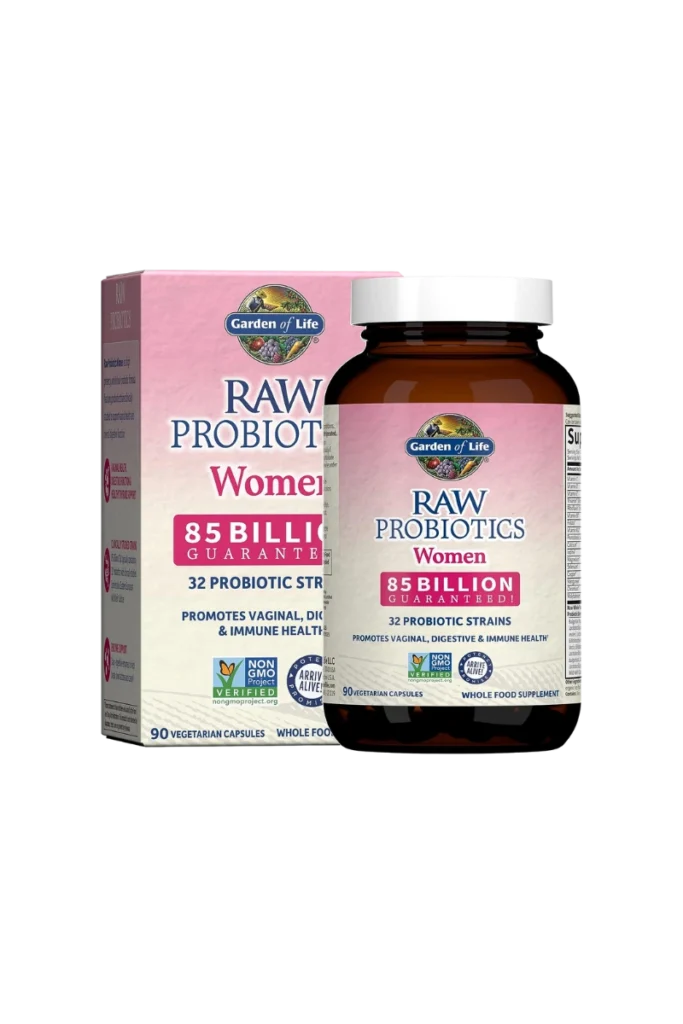
2. Love Wellness Good Girl Probiotics
Good Girl Vaginal Probiotics
60 Capsules
Price: $0.48 per Count
Best Features:
- Gluten-Free
- 8 Diverse Probiotic Strains
- 1 Billion CFU
- Gynecologist Recommended
- Dairy-Free
Why buy it
- Maintain A Balanced pH, Urinary Tract Health, And Healthy Yeast Levels
- Improve Reproductive Health Organs, The Gut, And The Immune System
- Alternative Daily Food For Women
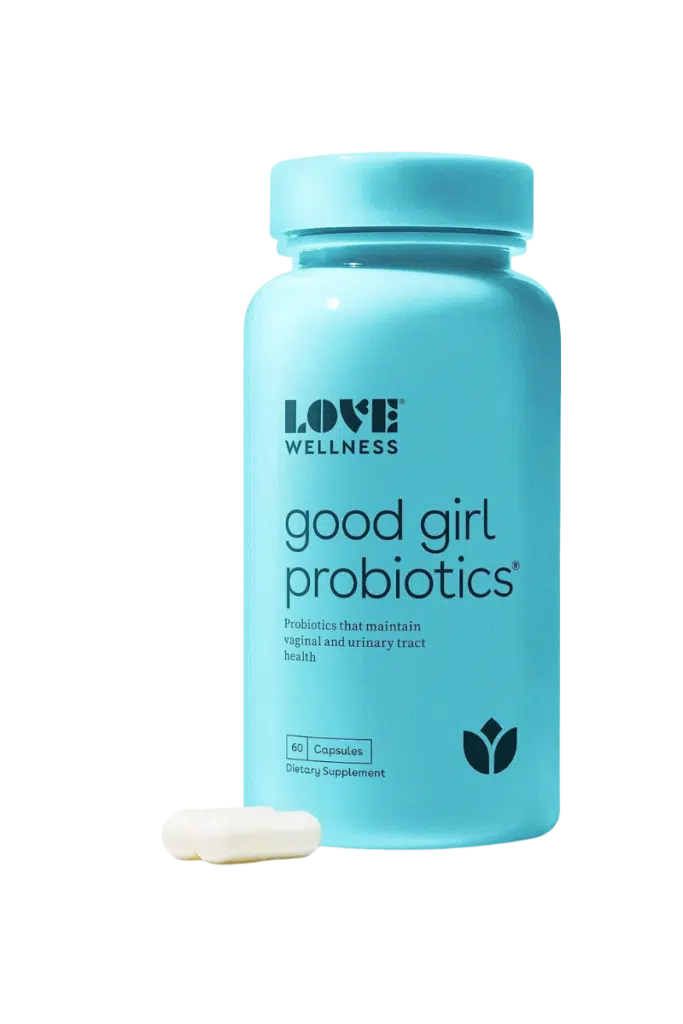
3. Garden Of Life Dr.Formulated
Extra Strength Probiotic For Women
30 Vegetarian Capsules
Price: $1.14 per Count
Best Features:
- Climate Pledge Friendly
- 18 Diverse Probiotic Strains
- 100 Billion CFU
- 65mg fiber Fiber Blend
- 50mg Upcycled Postbiotic
- NSF Contents Tested & Certified
- Non-GMO, Gluten Free
- B Corp & Carbon Neutral
Why buy it
- Triple Formula By Dr. David Perlmutter, One Of America’s Leading Microbiome Experts
- Clinically Studied Probiotic
- Digestive And Immune System Support For Women
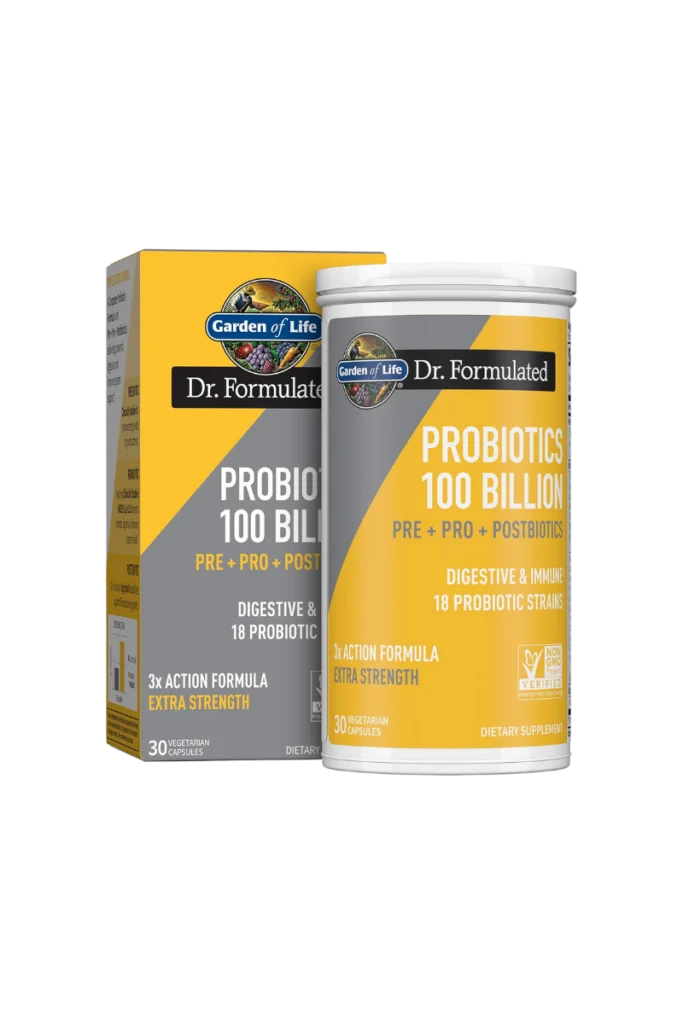
4. Dr.Formulated Probiotic For Women
Women's 30+ Raw Probiotic
60 Vegetarian Capsules
Price: $0.42 per Count
Best Features:
- 34 Diverse Probiotic Strains
- 100 Billion CFU
- 3 Types Of Prebiotics
- 10 Types of Digestive Enzymes
- 7 Organic Vegetables
- Non-GMO, Gluten Free
Why buy it
- Doctor Formulated Probiotics Supplement
- Best Probiotic For Women 30+
- Digestive, Metabolism, and Nervous System Support For Women
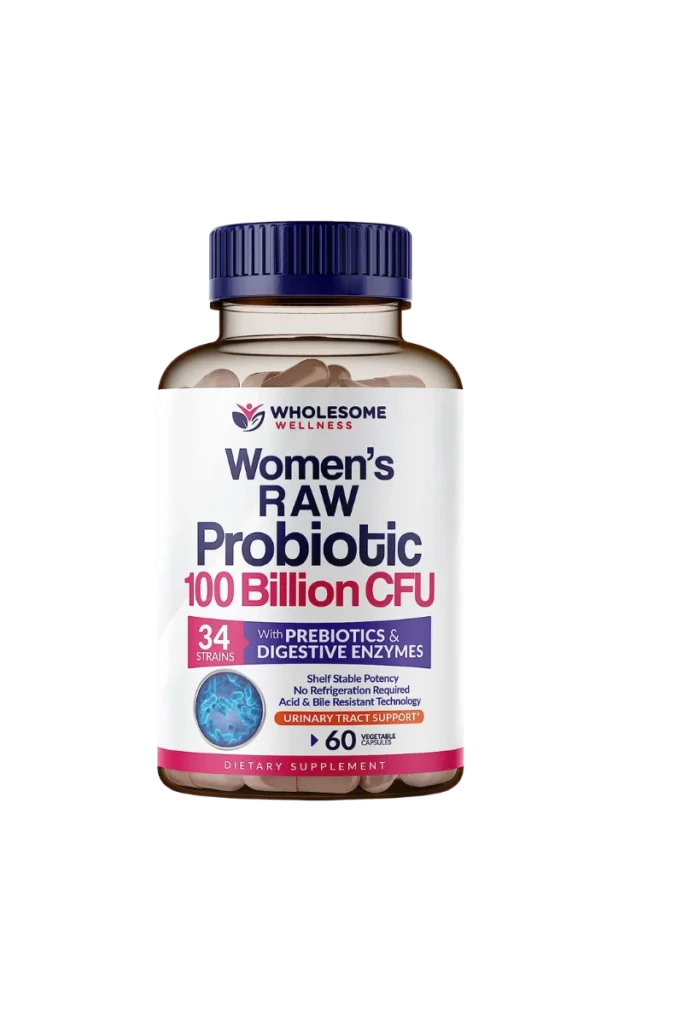
5. Microbiome Labs MegaSporeBiotic
First All Spored-Based Probiotic For Women
180 Vegetarian Capsules
Price: $0.88 per Count
Best Features:
- Climate Pledge Friendly
- 5 Spore-Based Probioticsns
- 4 Billion CFU
- DNA-Verified Bacillus Strains
Why buy it
- Stomach Survivor
- Bi-Phasic Life Cycle Of The Bacillus Spore Probiotic
- Remain Dormant In Harsh Stomach Environments
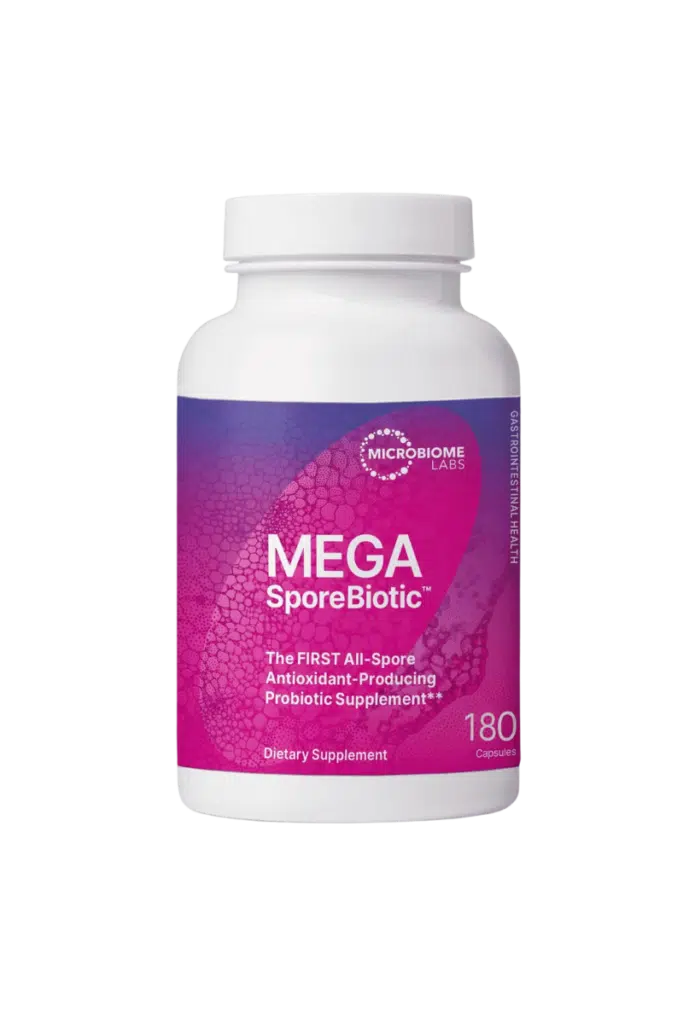
6. Genestra HMF Forte Probiotic
Research & Evidence-Based Probiotic For Women
120 Vegetarian Capsules
Price: $0.64 per Count
Best Features:
- Climate Pledge Friendly
- 4 Diverse Probiotic Strains
- 100mg Prebiotic Fibers
- 10 Billion CFU
- Health Canada Good Manufacturing Practice (GMP)
- FDA Current Good Manufacturing Practice (CGMP)
- Non-GMO, FOS-free
Why buy it
- Genestra Brands is> 30 years
- Support Healthy Gut Microflora Balance
- Exceptional Quality, Consistency, and Reliability
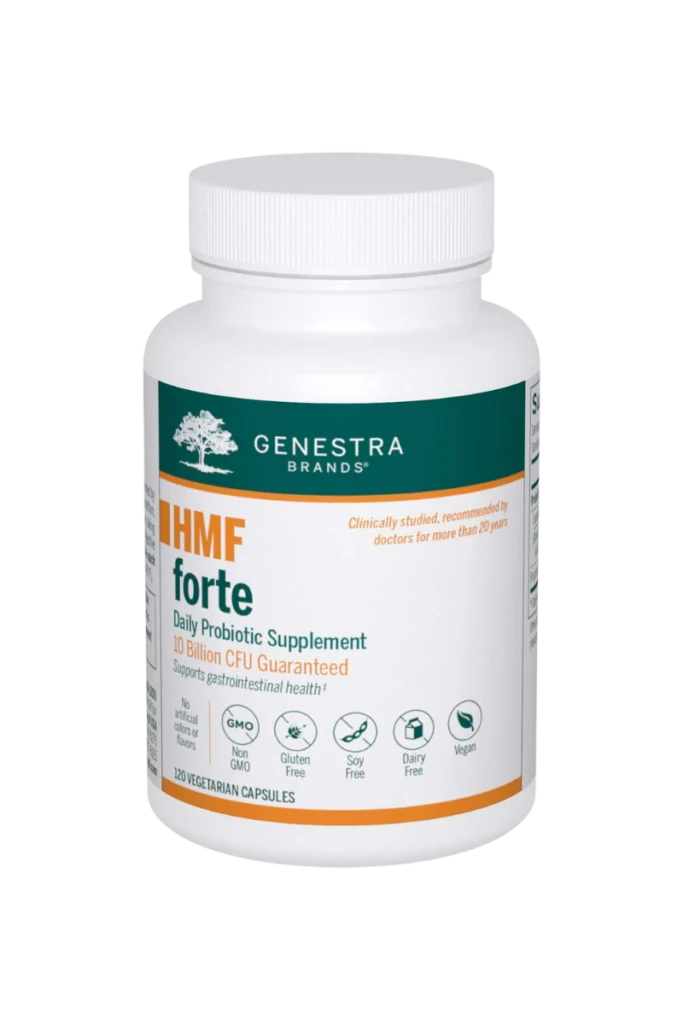
Best Probiotic For Women's Gut Health
Probiotics are live microorganisms that, when administered in adequate amounts, confer a health benefit on the host
Probiotics may also have a positive impact on digestive health in women.
They can help regulate bowel movements, alleviate symptoms of irritable bowel syndrome (IBS), and improve overall gut health.
Additionally, probiotics have been shown to enhance the absorption of nutrients from food, which can be particularly beneficial for women who may have nutrient deficiencies, such as iron or calcium
A study investigated the effects of a 6-month placebo-controlled probiotic intervention with Bifidobacterium animalis subsp. lactis (BB-12®) and Lactobacillus rhamnosus (LGG®) on gut microbiota composition and diversity in Danish infants.
The study found that probiotic administration did not significantly alter gut microbiota community structure or diversity compared to placebo.
It is worth noting that the effects of probiotics on gut microbiota may vary depending on the age group.
7. Physician's Choice Probiotics
Gas & Bloating Probiotic For Women
30 Vegetarian Capsules
Price: $0.73 per Count
Best Features:
- Climate Pledge Friendly
- 10 Diverse Probiotic Strains
- 150mg Organic Prebiotic Fibers
- 60 Billion CFU
- CSP Bottle, Acid-Resistant Capsules
- Good Manufacturing Practice (cGMP)
- Non-GMO, Gluten-free
Why buy it
- One-In-One Solution For Gut Health
- Support A Diverse Healthy Microbiome
- Backed By Science
- Best Prebiotic For Women
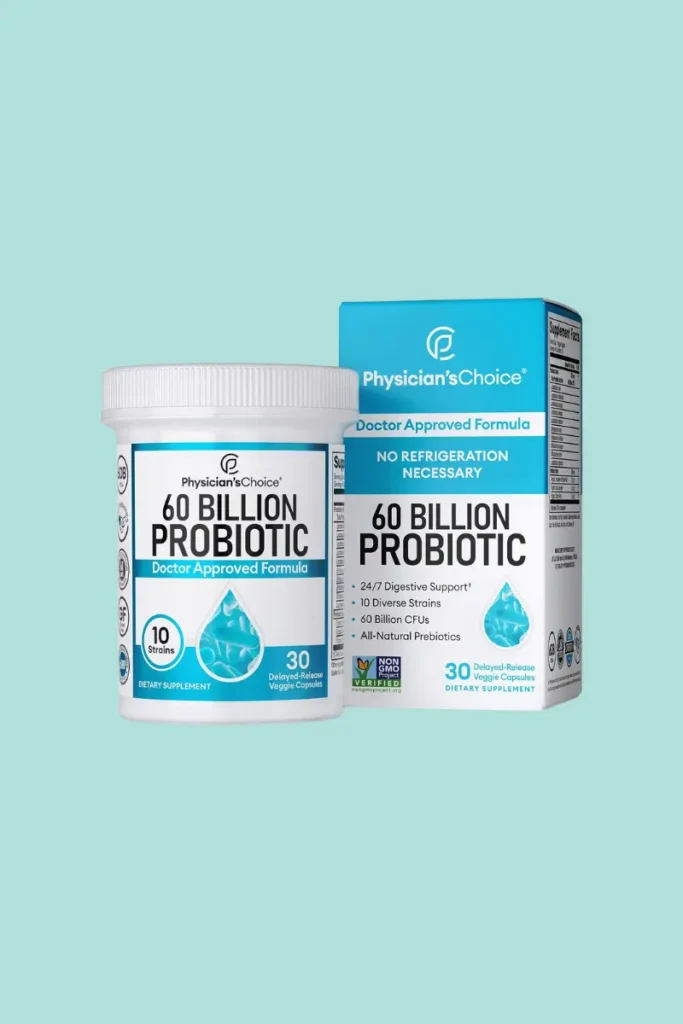
8. Hyperbiotics Pro 15 Probiotic
Time-Release Probiotic for Women
60 Vegetarian Capsules
Price: $0.52 per Count
Best Features:
- Amazon’s Choice
- Climate Pledge Friendly
- 15X More Survivability
- 15 Diverse Probiotic Strains
- 25mg Organic Prebiotic Fibers
- 5 Billion CFU
- GMP-certified through NSF
- Non-GMO, Gluten-free
Why buy it
- Supports Gas, Digestive & Gut Health
- Tested For Safety and Potency
- Formulated For Your Needs
- Best Probiotics For Gut Health
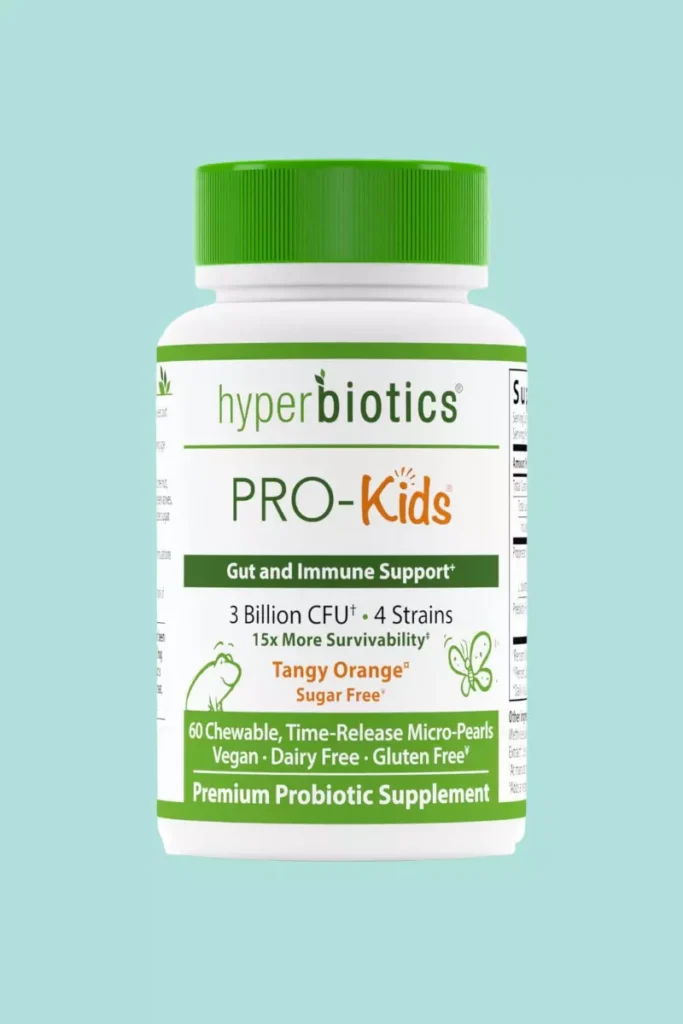
9. Ritual Synbiotic+
3-In-1 Clinically Prebiotic, Postbiotic, Probiotic For Women
30 Vegetarian Capsules
Price: $2.00 per Count
Best Features:
- Climate Pledge Friendly
- 100% Made Traceable Ingredients
- Moisture-Controlled Bottle
- 11 Billion CFU
- Prebiotics PreforPro from Georgia
- Probiotics BB-12, LGG (Lactobacillus rhamnosus) from Denmark
- Postbiotics Butyrate (As Tributyrin) From Spain
Why buy it
- Third-Party Tested
- Smart Capsule With Optimizing Efficiency
- Digestive And Immunity Support For Women

Best Probiotic For Weight Loss
Studies have shown that probiotics and dietary fiber can be effective in promoting weight loss and improving metabolic health, particularly in individuals with obesity or diabetes
One study conducted a randomized clinical trial with pregnant women with diet-controlled gestational diabetes mellitus and found that probiotic supplements led to lower fasting glucose and insulin resistance.
Another study focused on schizophrenia patients and found that probiotics when combined with Vitamin D, improved clinical symptoms and metabolic dysfunctions.
These findings suggest that probiotics may have a positive impact on weight control in specific populations.
The composition of gut microbiota has also been linked to weight changes.
Studies have shown that the gut microbiota composition in obese individuals differs from that of lean individuals, and modifications in the gut microbiota can be associated with weight changes.
Certain microbiota species, such as Bifidobacterium and Lactobacillus, have been found to be effective in reducing weight gain.
10. Physician's Choice Thin 30 Probiotics for Weight Loss
All-In-One Weight Management Probiotic for Women
30 Veggie Capsules
Price: $0.84 per Count
Best Features:
- 410mg Weight Loss Ingredients
- 6 Diverse Probiotic Strains
- 150mg Organic Prebiotic Fibers
- 15 Billion CFU
- Good Manufacturing Practice (cGMP)
- Non-GMO, Gluten-free
- Doctor Approved Formula
Why buy it
- Best Probiotics for Weight Loss
- Supports Digestive Health & Balance
- Safety Assured Standard of Quality
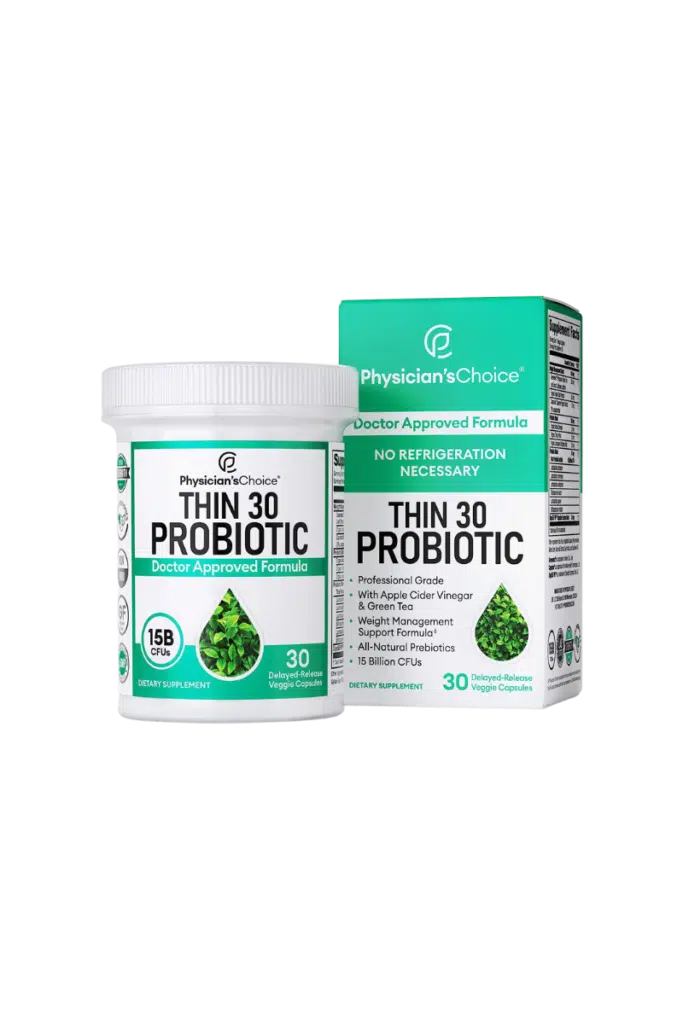
11. Better Body Co. Original Provitalize
Clinical Researched Weight Control Probiotic for Women
60 Veggie Capsules
Price: $0.82 per Count
Best Features:
- 3 Diverse Probiotic Strains
- Weight Loss Prebiotic Fibers
- 68 Billion CFU
- Good Manufacturing Practice (cGMP)
- Non-GMO, Gluten-free, Acid-Resistant Capsules
Why buy it
- Formula Support For Sleep, Join Pains, Mood
- Supports Digestive Health & pH Balance
- Trusted By> 600,000+ Women
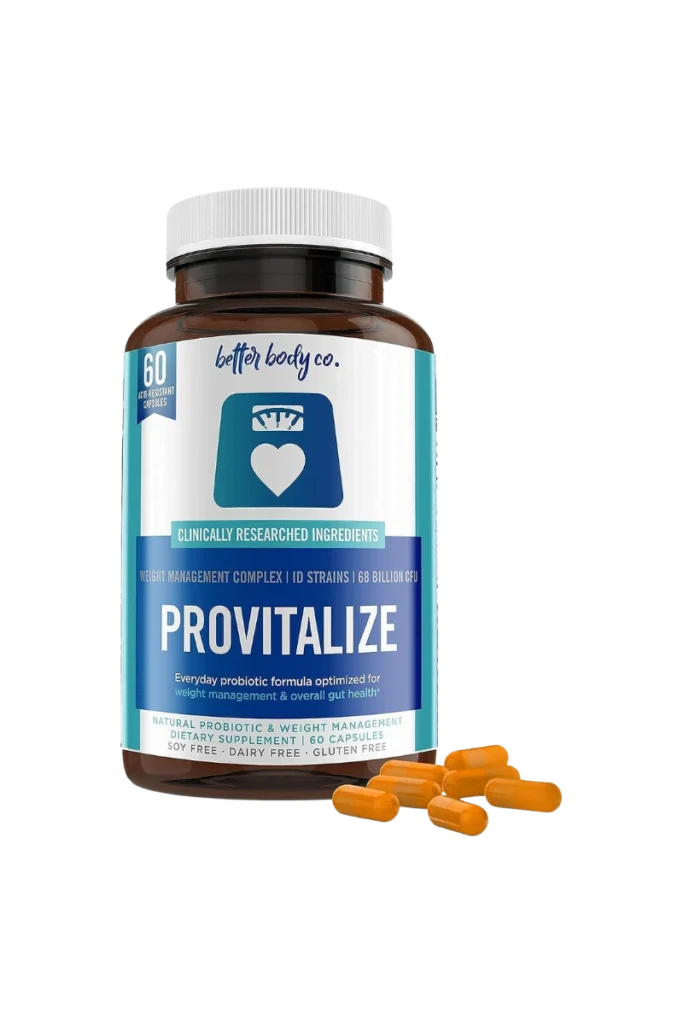
Frequently Asked Questions ( FAQs)
What Are The Best Probiotics for Women Brands?
What Is The #1 Women's Probiotic?
What Strain Of Probiotics Is Best For Women?
What Probiotic Is Recommended By Most Doctors?
What Is The Best Time Of Day To Take A Women's Probiotic?
Should Women Take Probiotics Daily?
Key Takeaways
- Probiotics can be beneficial for women's gut health.
- There are a variety of probiotics available in the market, and this article provides a clear recommendation for the best one.
- Consider the following 11 best probiotics for women that offer distinct benefits to support digestive health, weight loss, and immunity.
- You will how to choose the right probiotic for your needs as this article is aimed at women who are looking for probiotics to improve their gut health.
References
Fitnature uses only high-quality sources, including peer-reviewed studies, to support the facts within our articles. Read our editorial process to learn more about how we fact-check and keep our content accurate, reliable, and trustworthy.
- Collins, Fraser L., et al. “Lactobacillus Reuteri 6475 Increases Bone Density in Intact Females Only under an Inflammatory Setting.” PLOS ONE, vol. 11, no. 4, Apr. 2016, https://doi.org/10.1371/journal.pone.0153180.
- Depoorter, Leontien, and Yvan Vandenplas. “Probiotics in Pediatrics. A Review and Practical Guide.” Nutrients, vol. 13, no. 7, June 2021, https://doi.org/10.3390/nu13072176.
- Drago, Lorenzo, and Marco Toscano. “Probiotics.” Probiotics, Prebiotics, and Synbiotics, Elsevier, 2016, pp. 831–37, http://dx.doi.org/10.1016/b978-0-12-802189-7.00064-2. Accessed 3 Aug. 2023.
- Fijan, Sabina. “Microorganisms with Claimed Probiotic Properties: An Overview of Recent Literature.” International Journal of Environmental Research and Public Health, vol. 11, no. 5, May 2014, pp. 4745–67, https://doi.org/10.3390/ijerph110504745.
- Getzzg. “Impact of Probiotic on Anxiety and Depression Symptoms in Pregnant and Lactating Women and Microbiota of Infants: A Systematic Review and Meta-Analysis — JOGH.” JOGH, 12 May 2023, https://jogh.org/2023/jogh-13-04038. Accessed 3 Aug. 2023.
- Huang, et al. “Probiotics Plus Dietary Fiber Supplements Attenuate Olanzapine-Induced Weight Gain in Drug-Naïve First-Episode Schizophrenia Patients: Two Randomized Clinical Trials.” Schizophrenia Bulletin, vol. 48, no. 4, May 2022, pp. 850–59, https://doi.org/10.1093/schbul/sbac044.
- Huang, Jing, et al. “The Effects of Probiotics plus Dietary Fiber on Antipsychotic-Induced Weight Gain: A Randomized Clinical Trial.” Translational Psychiatry, vol. 12, no. 1, May 2022, pp. 1–9, https://doi.org/10.1038/s41398-022-01958-2.
- Khalesi, Saman, et al. “A Review of Probiotic Supplementation in Healthy Adults: Helpful or Hype?” European Journal of Clinical Nutrition, vol. 73, no. 1, Mar. 2018, pp. 24–37, https://doi.org/10.1038/s41430-018-0135-9.
- Kumari, Uma, et al. “Probiotics in Human Nutrition, Health Improvement, Infection Prevention, and Disease Management – A Review.” International Journal of Research Publication and Reviews, vol. 4, no. 4, Apr. 2023, pp. 436–43, https://doi.org/10.55248/gengpi.2023.4.4.34434.
- Kwoji, Iliya D., et al. “Multi-Strain Probiotics: Synergy among Isolates Enhances Biological Activities.” Biology, vol. 10, no. 4, Apr. 2021, p. 322, https://doi.org/10.3390/biology10040322.
- Laursen, Martin Frederik, et al. “Administration of Two Probiotic Strains during Early Childhood Does Not Affect the Endogenous Gut Microbiota Composition despite Probiotic Proliferation.” BMC Microbiology, vol. 17, no. 1, Aug. 2017, pp. 1–9, https://doi.org/10.1186/s12866-017-1090-7.
- Million, Matthieu, et al. “Comparative Meta-Analysis of the Effect of Lactobacillus Species on Weight Gain in Humans and Animals.” Microbial Pathogenesis, vol. 53, no. 2, Aug. 2012, pp. 100–08, https://doi.org/10.1016/j.micpath.2012.05.007.
- Perricone, Marianne, et al. “Challenges for the Production of Probiotic Fruit Juices.” Beverages, vol. 1, no. 2, May 2015, pp. 95–103, https://doi.org/10.3390/beverages1020095.
- Saha, Seeme, et al. “The Role of Probiotic Supplementation on Insulin Resistance in Obesity Associated Diabetes: A Mini Review.” Biomedicine, vol. 42, no. 4, Sept. 2022, pp. 651–56, https://doi.org/10.51248/.v42i4.1359.
- Sheyholislami, Hauna, and Kristin L. Connor. Are Probiotics and Prebiotics Safe for Use during Pregnancy and Lactation? A Systematic Review and Meta-Analysis. Cold Spring Harbor Laboratory, 25 Jan. 2021, http://dx.doi.org/10.1101/2021.01.19.21250133. Accessed 3 Aug. 2023.
- Syiemlieh, Ibahunlang, and Sonia Morya. “Dairy and Non-Dairy Based Probiotics: A Review.” The Pharma Innovation, vol. 11, no. 6S, June 2022, pp. 2956–64, https://doi.org/10.22271/tpi.2022.v11.i6sak.13568.
Review date not set.
How we reviewed this article:
Latest on:









